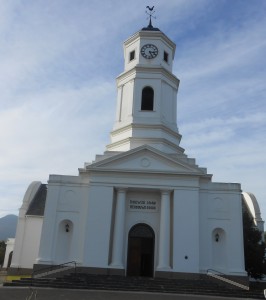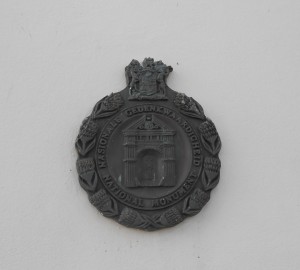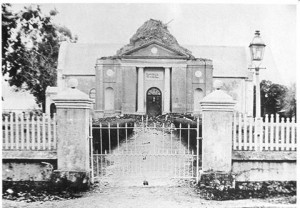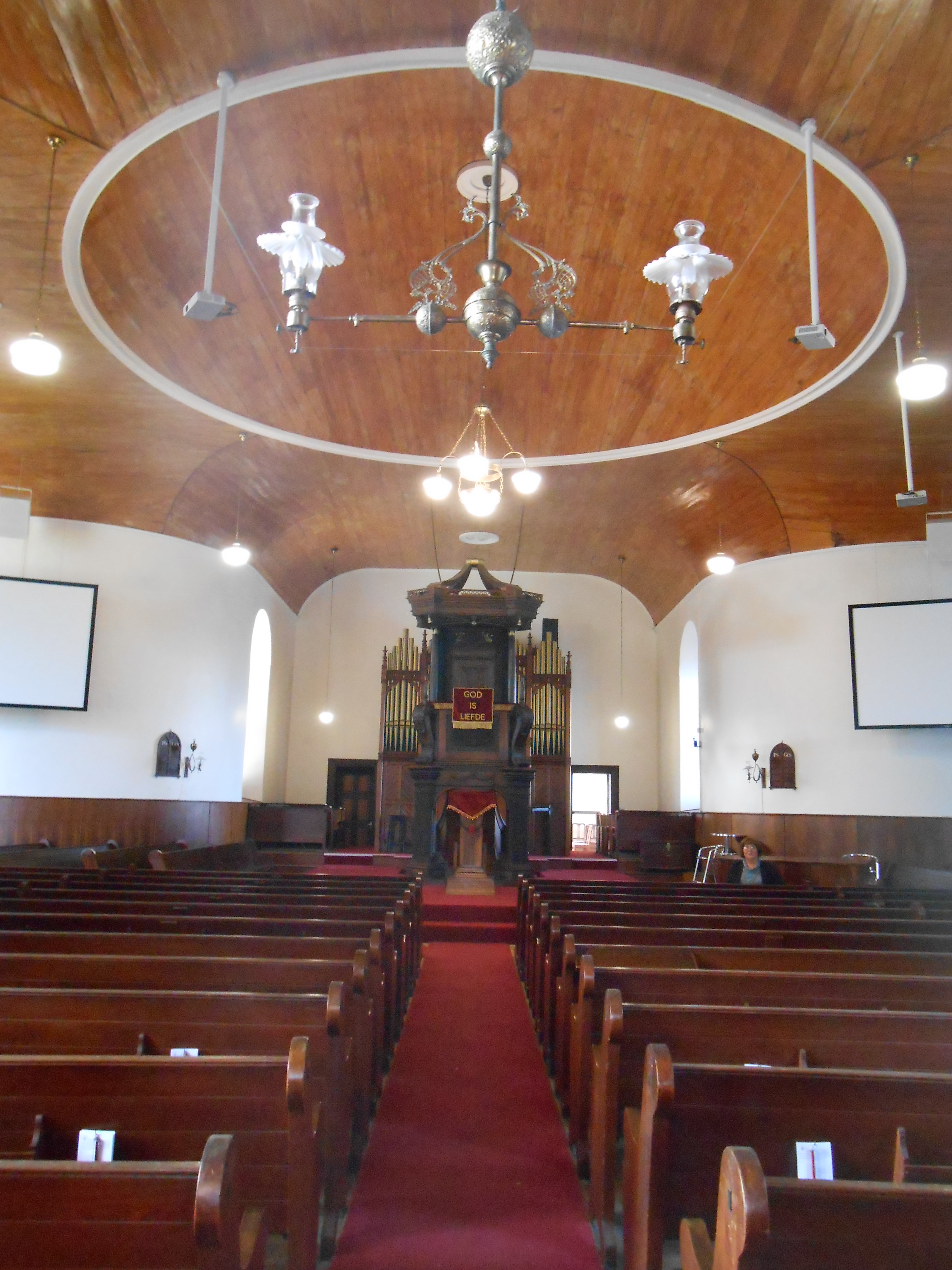Situated in the main road of my home town a visit to the church is a relaxing and peaceful outing and is open to visitors, but take cognizance that it still is an active church so be respectful, please.

Here you can witness the incredible history, architecture and craftsmanship that are present at this stately building which is also declared a National Heritage site.

The church’s story starts a decade or so before it was inaugurated. On 14 April 1832 Rev Ballot laid the first cornerstone of the building, but because of financial problems the building took twelve years to complete. But then the church suffered the unwelcome event on 13 September 1905 when the steeple collapsed after 10 inches (+- 250 mm) of rain fell in three days. The congregation bravely started with reconstruction work and the present bell was bought at the time. The London firm, Philipson and Stow, presented the congregation with the steeple clock.

As you exit the front doors of the church there is a historical old sundial next to the path of the main entrance which was erected by surveyor Edmore one and a quarter centuries ago.
The teak door of the main entrance was brought from Cape Town to George by ox wagon – not an easy task in those days! Even today with the well developed road network it will take a week or two to transport it from Cape Town to George. The present day organ dates back to 1879. The high wooden ceiling is very impressive and the yellowwood and stinkwood for the ceiling, support pillars and galleries all came from local forests in Plettenberg Bay and Knysna. The pulpit was also constructed from stinkwood at a cost of R400, which I suspect in those days was quite a fortune.

Although a historical building the church is still active and sermons are held every Sunday.
